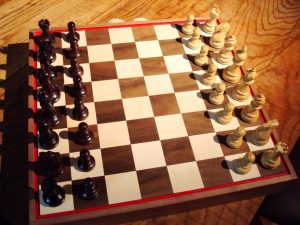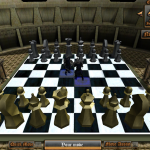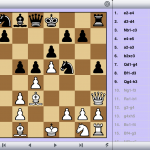While chess can certainly be challenging, the opening and closing sequences have been done so many times that the games sometimes loses its versatility in the eyes of the players. Remember when you first figured out how the pieces moved? The excitement you felt when you were trying to come up with your own strategies to beat your opponent, rather than follow sequences without much thought, while at the same time you are cooking lunch, chatting with a friend, and checking out what betminded.com has to offer.
In order to exercise their brain, chess players sometimes reach out to find games that are similar to chess in order to adapt to a new way of thinking – a new mindset, if you will. Here are a few games that are similar to chess that you might enjoy for a fresh perspective on things.
Go
Go originates from China and it is a two-player game. You need some black stones, some white stones, and a board with 19×19 spaces, though the number of spaces can vary. You and your opponent take turns placing your stones anywhere on the board. The object of the game is to surround as many spaces as you can, as well as to try and surround your opponent’s stones. The game ends when there are no more rules left to play, or when players agree that the game is over.
Xiangqi
Another game that comes from China is Xiangqi (pronounced /ˈʃɑːŋtʃi/). Like in chess, the object is to bring the king, or in this case, the general, down. Another similarity is that both players have 16 pieces at their disposal on a special board. The pieces move one space at a time, and you can capture your opponent’s pieces if they get in the way. In the middle of the board, there is a river, which is important, since there are pieces that cannot cross it. There is one twist that chess players may find irksome at first – if you keep checking your opponent, you may be asked to stop or lose the game.
Chaturanga
This is the game that was said to be the ancestor of all modern chess-like games. It is very close to modern chess, with a few exceptions. There is no castling, the kings don’t face each other, some pieces move a little differently, and if there is a stalemate – the player that is forced into it is actually the winner. To win, you do not checkmate the king – you eliminate every other piece.
Shogi
Also known as the Japanese chess, Shogi is played on a 9×9 board. Both players have a king, a rook, a bishop, two gold generals, two silver generals, 2 knights, two lances, and nine pawns at their disposal. A coin toss usually decides who goes first. Shogi may be somewhat complicated for novices since every piece has its own moving scheme.
Like in chess, pieces can be promoted, though the rules are a little bit different in this regard. The promotion of pieces is not only determined by their position, but their previous rank, as well. One of the things we just love about Shogi is the fact that you can reintroduce the pieces you have captured into the game under your control. To win, you either have to checkmate the king, make him unable to perform any legal moves, or make your opponent resign.







